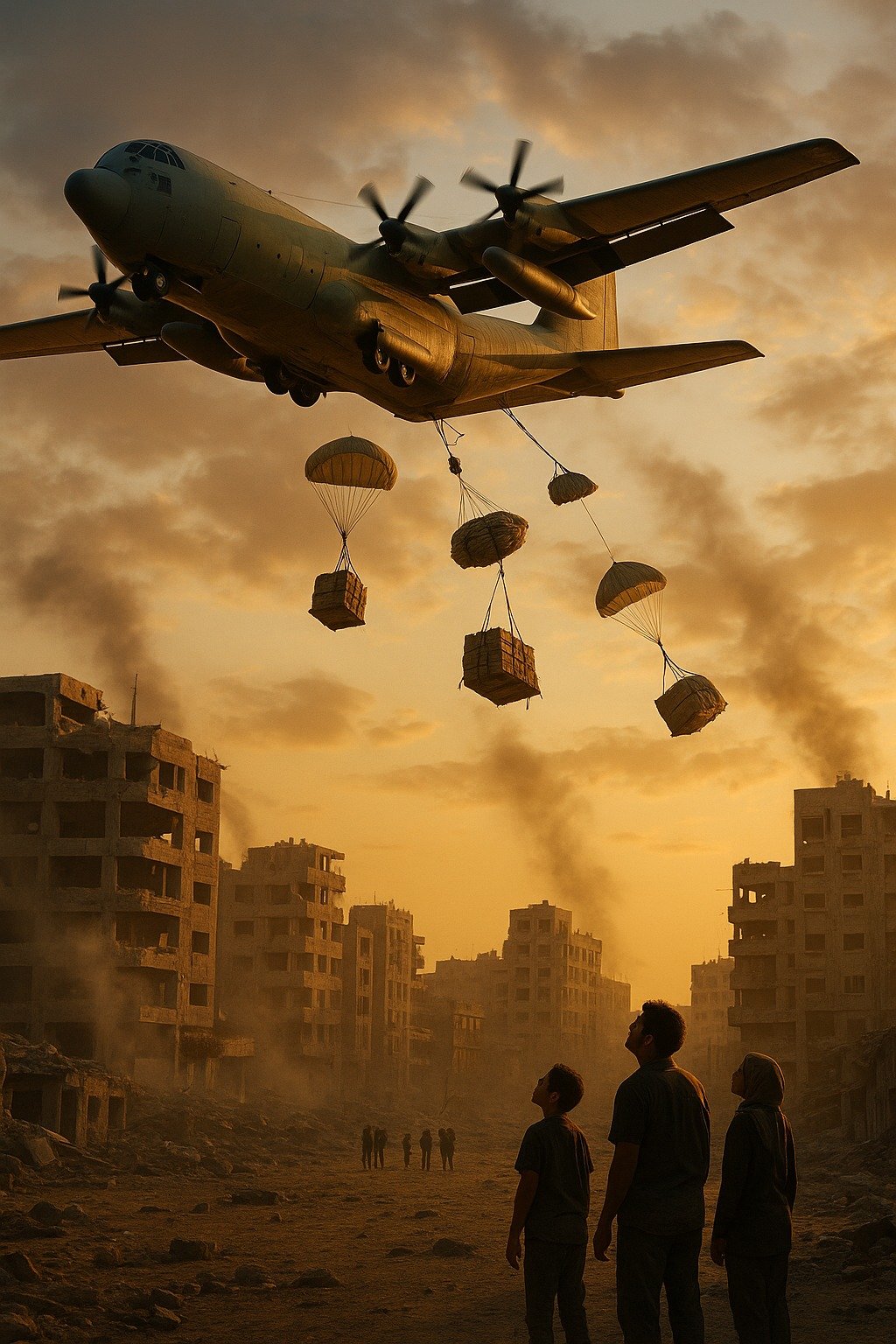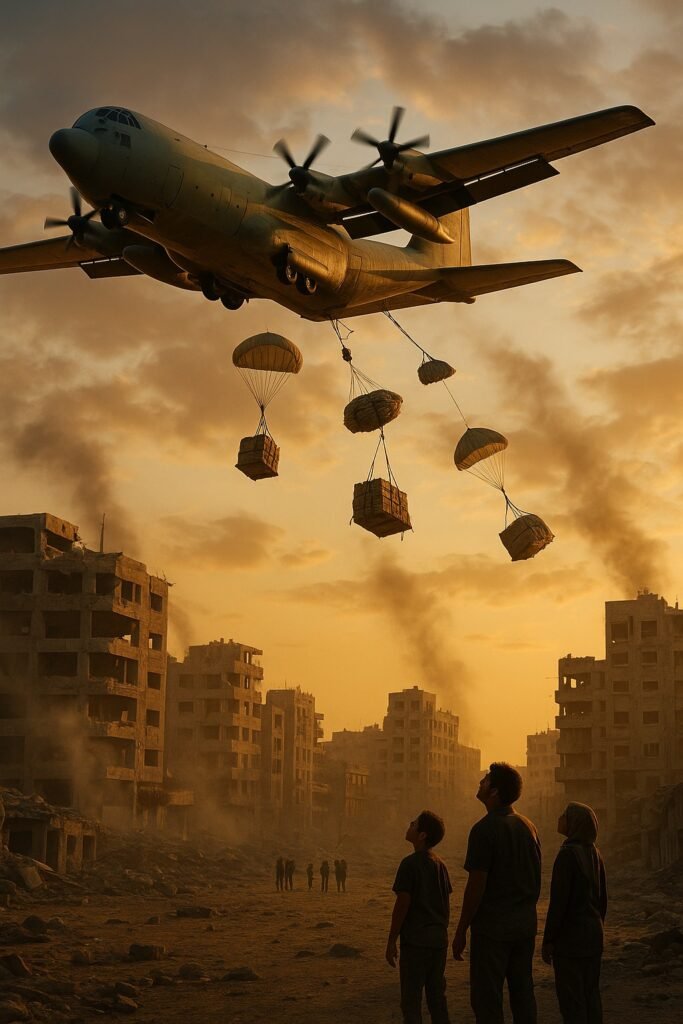[ad_1]
📰 Israel Airlifts Humanitarian Aid to Gaza Amid Global Pressure
🗓️ July 27, 2025
📍Tel Aviv, Israel
📄Under mounting international scrutiny, Israel has temporarily eased its blockade on the Gaza Strip, initiating aerial humanitarian aid deliveries amid what the UN describes as a deepening humanitarian disaster.
On July 26, the Israeli Defense Forces (IDF) began airlifting food supplies—flour, sugar, and canned goods—into northern Gaza, while also announcing plans to reopen designated air corridors for aid deliveries. Israel’s military stated that the operation aims to “counter false claims of deliberate starvation” and to “improve humanitarian conditions” in the region.
The IDF reported that over 250 trucks carrying aid crossed the border this week, with international agencies coordinating logistics. Israel also restored electricity to Gaza’s desalination plant, increasing its daily potable water output from 2,000 to 20,000 cubic meters, benefitting nearly 900,000 residents.
Israel’s Prime Minister Benjamin Netanyahu approved a 24-hour ceasefire on July 27 after emergency talks with Defense Minister Israel Katz and Foreign Minister Gideon Sa’ar. The move follows intense criticism of Israel’s role in worsening conditions for civilians during its ongoing conflict with Hamas.
Despite these steps, Israel maintains its position that the humanitarian crisis is exaggerated by Hamas propaganda, asserting that no starvation exists in Gaza and that aid mismanagement by NGOs is to blame.
The United Arab Emirates quickly followed suit, announcing the immediate resumption of its airdrop missions. The U.K. also pledged to assist, with Prime Minister Keir Starmer coordinating joint airlift efforts with Jordan and European allies to deliver food and evacuate children requiring medical aid.
However, humanitarian organizations remain skeptical. UNRWA Commissioner-General Philippe Lazzarini warned that “airdrops are expensive, ineffective, and potentially deadly,” referencing incidents where civilians were killed by falling aid packages. The World Food Programme estimates that one-third of Gaza’s population has gone days without food, and over 470,000 people are now in “catastrophic” Phase 5 food insecurity.
Since the October 2023 outbreak of war, Israel has tightened its siege, limiting access to food, medicine, and electricity. Aid groups argue that centralizing aid delivery through Israel’s Gaza Humanitarian Foundation has further restricted independent humanitarian operations.
According to Gaza’s Health Ministry, 127 people—including 85 children—have died from malnutrition since the start of the war. The current aid measures, though notable, are widely viewed as insufficient.
While the temporary ceasefire and airdrops may relieve international pressure, they are unlikely to significantly alleviate Gaza’s worsening crisis. The absence of sustained logistical infrastructure and Israel’s reluctance to permit full-scale NGO operations suggest the humanitarian situation may deteriorate further. Global actors may demand broader ceasefire frameworks and independent aid access mechanisms in coming weeks.
🔗 Reported from Tel Aviv, Israel – World News War Correspondence Desk
Stay Connected with NewsRT:
For the latest headlines and urgent updates, visit our Breaking News section. If you want to stay informed about global affairs, our World News page brings you top stories from around the world.
For entertainment lovers, check out our Entertainment category to catch up on celebrity news, movies, and trending shows. Sports fans can follow live scores and in-depth match reports in our dedicated Sports section.
Stay on top of your health with expert insights and wellness tips on our Health page. For the latest financial updates, market trends, and stock analyses, visit our Stock Market section.
Don’t forget to explore our homepage for more top stories, exclusive reports, and real-time news updates curated for you.
